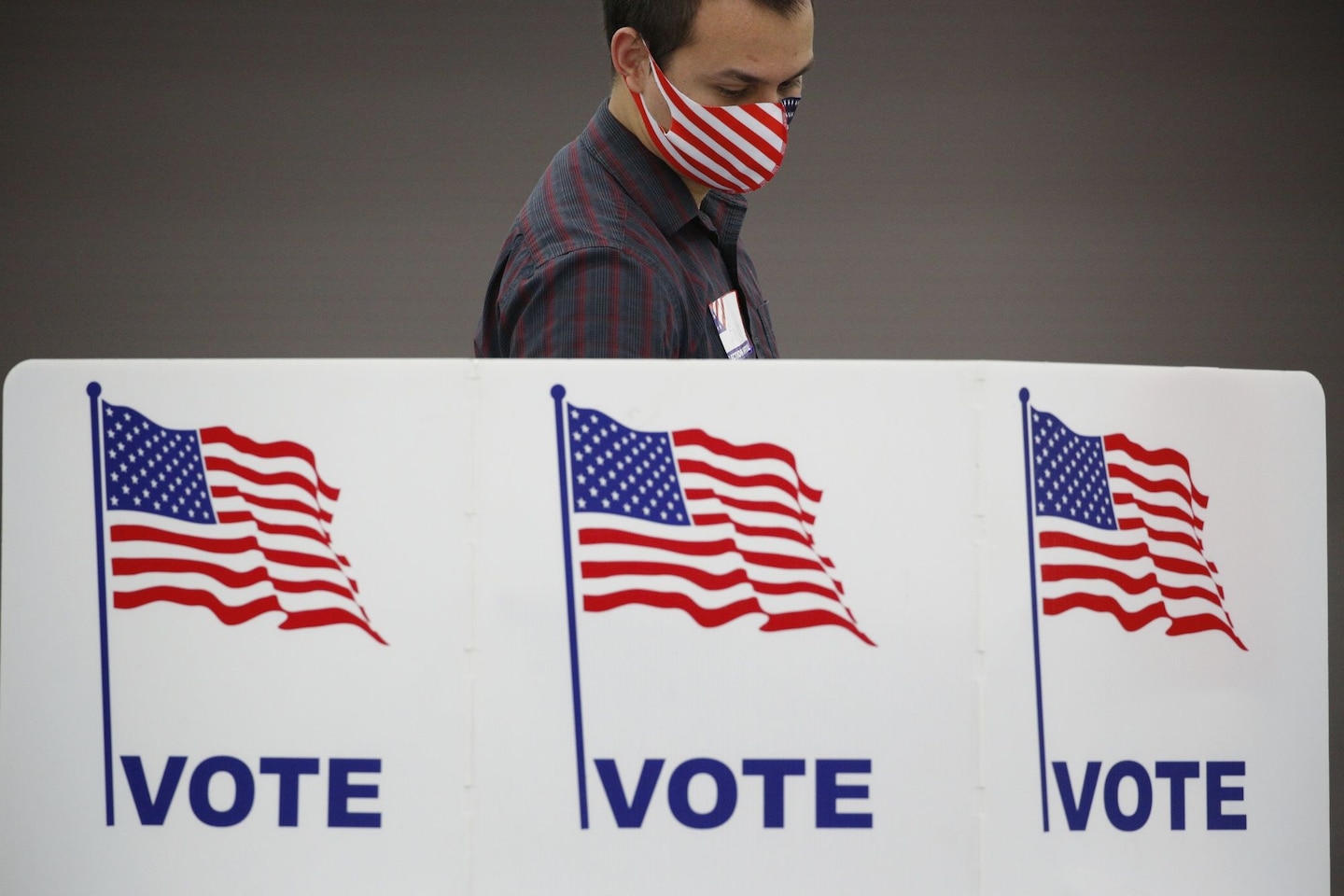New poll confirms Republicans’ wariness of voting by mail

A new Washington Post-University of Maryland poll finds that while Democrats are split on whether they prefer to vote in person or by mail, 71 percent of Republicans say they prefer to vote in person, with 21 percent preferring to vote by mail and 9 percent preferring to drop off their ballot.
There’s evidence that Trump’s frequent warnings about mail voting are persuading Republicans to avoid it: While 95 percent of people who say they’re definitely voting for Trump are confident that their ballot cast in person on Election Day will be counted accurately, that goes down to 45 percent when asked how confident they are of the same outcome when voting by mail. Sixty-five percent of those definitely voting for Trump predict that fraudulent attempts to vote will happen very or somewhat often.
Why is that a potential problem for Trump and Republicans?
It could make it more difficult for these voters to cast ballots. All states will offer some kind of in-person voting in November, even the nine states — plus D.C. — that are automatically sending out ballot to voters.
But election officials warn that there could be long lines as they try to space people six feet apart. The search is on for bigger venues — the National Basketball Association has offered up arenas, and vote-by-mail advocates are in talks with major concert halls to do the same.
But that won’t be the case in every community. Many are closing some regular in-person polling places, meaning there’s a risk people could show up at the wrong place to vote.
In addition, if election officials assume that a significant portion of voters will choose the by-mail option, they may not staff these polling places well enough to handle big groups of voters showing up to cast ballots. Or they may not be able to. Many jurisdictions are worried about a shortage of poll workers to keep the process moving smoothly. The poll from The Post and U-Md. asked people whether they would be willing to volunteer as poll workers and didn’t see a rush of people willing to volunteer.
Maybe this won’t be as big of a deterrent to Republicans casting their ballots for Trump as some fear. All but nine states offer early in-person voting, according to the National Conference for State Legislatures, and that could reduce lines. The poll found that 94 percent of those who say they are definitely voting for Trump also say they are definitely voting, so maybe they will be motivated to cast their ballot despite the hurdles. (The poll finds 92 percent of those definitely not voting for Trump are certain they’ll vote, too.)
But voting by mail is being expanded in the fall, precisely because election officials across the country think it’s the safest and most efficient way to cast ballots in a pandemic. What happens if there is a surge in coronavirus infections right before the election and health officials warn it’s just not safe to vote in person? At least 83 percent of Americans can vote by mail in the fall, according to a Post analysis. All but a handful of states have expanded their absentee ballot programs to allow people to vote by mail if they don’t want to risk getting the coronavirus by voting in person.
Voting by mail comes with its own concerns, most of them about disenfranchisement rather than fraud — such as voters who don’t fill out their ballot correctly, or mail it too late, or Postal Service delays, or litigation changing the rules at the last minute.
But this is the way a huge share of Americans will vote in the fall, and a clear majority of Republicans say they want no part of it. Fifty percent of Republican voters — and 60 percent of those who say they’re definitely voting for Trump — say they don’t think fear of the coronavirus should count as a reason to vote absentee.
The final reason this GOP trend away from mail voting is concerning is less about one party’s success and more about how the outcome will be viewed. The partisan difference in the way people plan to vote makes it more likely that the person leading on Election Day is not the same as the person leading when all the votes have been counted.
One possible scenario is that results from in-person polling are released on election night, and because Republicans seem much more likely to cast votes that way, Trump is ahead. Then days or even weeks later, mailed ballots are counted and Trump’s lead shrinks or is overtaken by Biden. And that, political scientists warn, has the makings of a constitutional crisis in which one or each side feels as if the election was stolen.
Given Republicans’ skepticism about mail voting to begin with, they seem primed to believe any arguments made by Trump or his allies that fraud — rather than legitimately cast ballots that simply took longer to count — could cost the president the White House.
There’s one piece of news in this poll that should hearten election officials: Majorities in both parties say they expect results will come after election night, which is exactly the expectation election officials are trying to set.






